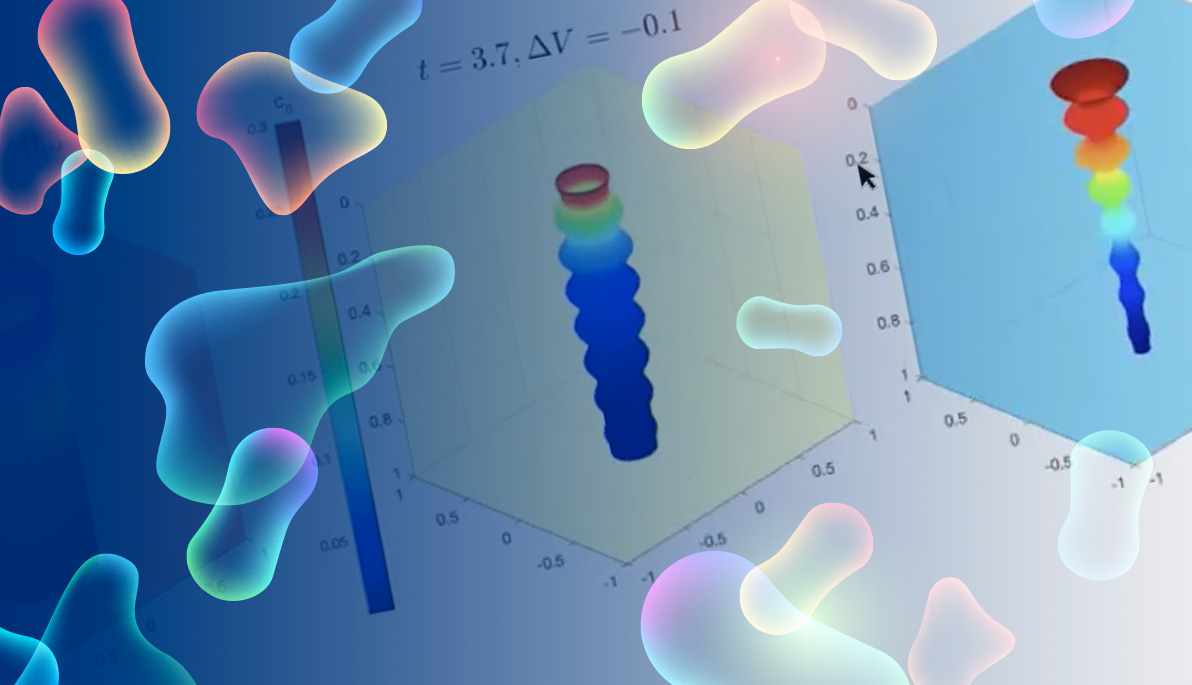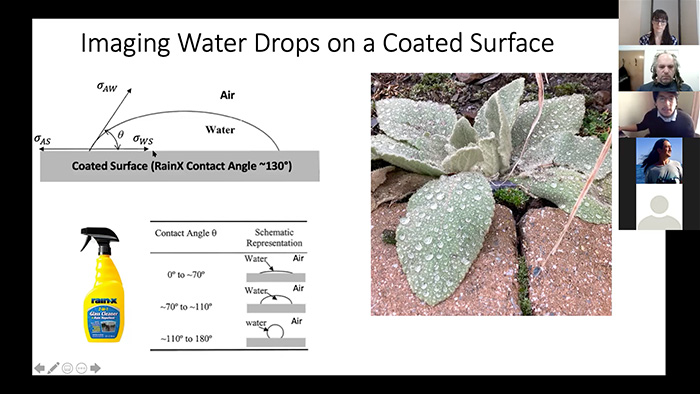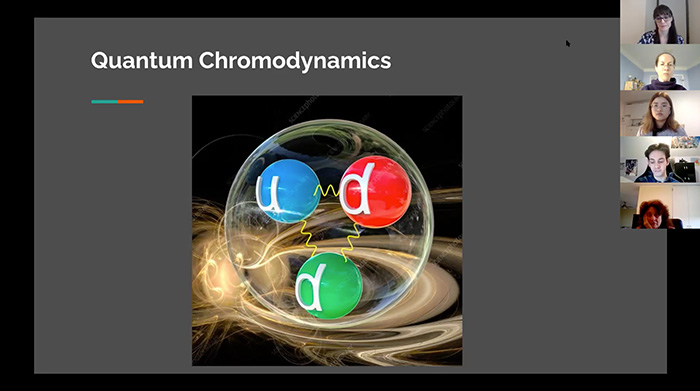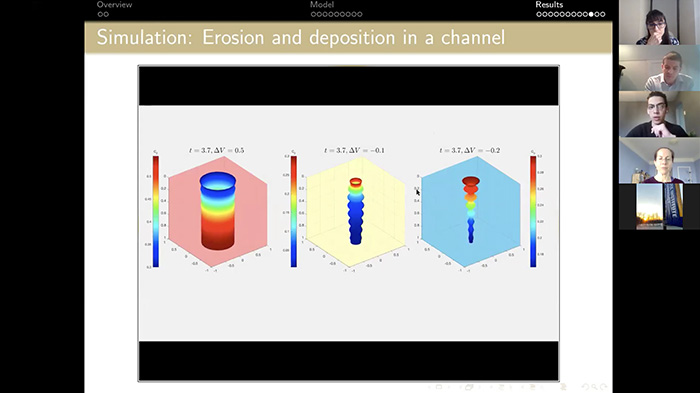
Symposium Turns Students Into Scientific Communicators
December 22, 2020
The ability to effectively communicate scientific findings is critical in bridging the gap between researchers and the general public. Researchers and scientists use that ability to distill complex theories and findings for a wide audience to help people understand critical topics such as climate change, medicine, engineering, and many other areas.
With the help of experts from the Department of Physics and Department of Mathematics, New York Tech students are sharpening their science communication skills.
At the Math and Physics Student Research Symposium, students who completed research in physics and math had the opportunity to present their work. The event, which was held virtually on December 11, was organized by Eve Armstrong, Ph.D., assistant professor of physics, Sophia Domokos, Ph.D., assistant professor of physics, and Vitaly Katnelsen, Ph.D., assistant professor of mathematics.

“Development of a 3-D-Printed Microscope with a Movable Specimen Holder,” presented by Carlos Zuna Largo.
“It is vital for a scientist to not only do good science but also be able to communicate that science,” said Armstrong. “It does not matter how brilliant your work is if you’re the only one who understands it. Further, it is the responsibility of a scientist to be able to communicate to a range of audience types, from experts and the general public, as taxpayer dollars fund most of our work. And it is tricky to learn how to target an audience appropriately. It only comes with practice. The earlier a budding scientist begins that practice, the better.”
According to a study from the Pew Research Center, there is a disconnect between the ways in which the general public perceives science and the way that scientists explain their studies. New York Tech students are working to combat this disconnect by taking scientific theories and breaking them down into engaging conversations.

“Mathematical Modeling of Erosion and Sedimentation,” presented by Hamad El Kahza.
“We started this program because knowing how to give a talk is a key skill for any scientist,” said Domokos. “It’s often through talks that other scientists first learn about your work. Explaining your own research to others is also a great way to understand it better yourself. There are so many topics in my own research that I only understood clearly while preparing my own talk. We also wanted to give students a chance to get to know others interested in math and physics, while broadening their scientific horizons as they learn about all of the amazing math and physics research going on at New York Tech. We were so excited to welcome the whole New York Tech community to hear our students’ presentations; we’re really proud of what they’ve achieved.”

“Using String Theory to Understand Subatomic Particles,” presented by Trinh La and Patrick Mazza.
Student presentations included:
- “Using String Theory to Understand Subatomic Particles” by Trinh La and Patrick Mazza.
- “The Contact Binary Fraction” by Jax Apollon.
- “Development of a 3D-Printed Microscope with a Movable Specimen Holder” by Carlos Zuna Largo.
- “On Mathematical Modeling of Erosion and Sedimentation” by Hamad El Kahza.
- “How to Efficiently Simulate Granular Materials: From Cell Membranes to Sand” by Samantha Rivera.
- “Modeling and Controlling the Movement of a 3D Printed Robot” by Avery Gilson.
- “The Flow and Fouling in a Pleated Membrane Filter” by Dave Persaud.
- “The effects of Varying Membrane Density in a Pleated Filter” by Mikhail Smirnov.
The symposium was the final installment of the Math and Physics Research Seminar Series organized by Roger Yu, Ph.D., professor, dean emeritus, and interim chair of Physics, and Ranja Roy, Ph.D., professor and chair of Mathematics.
More Features

An Alumnus’ Commitment to the Environment
As an energy management graduate from New York Tech’s Vancouver campus, Jasdeep Gulati (M.S. ’22) is highly invested in educating people about environmental and climate sustainability.

Vancouver Faculty Win University-Sponsored Research Awards in New Program
The new Global Impact Research Grant (GIRG) program has been developed to keep Vancouver-based faculty connected to faculty and research projects being conducted on the university’s New York campuses.

Studying Climate Change One Degree at a Time
Junhua Qu (M.S. ’24) began her collegiate journey in Beijing. But, her interest in climate change took her to New York Tech’s Vancouver campus to study energy management.
